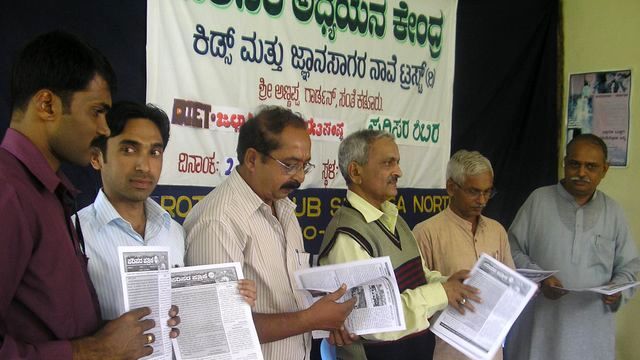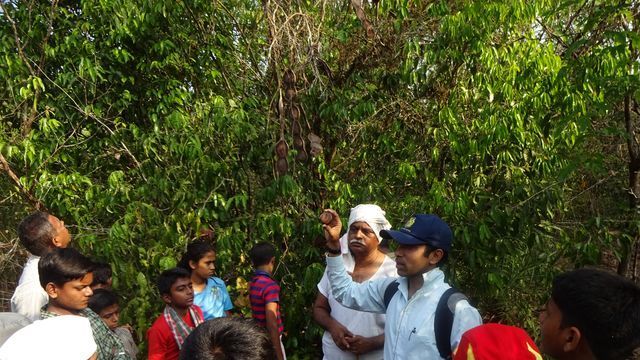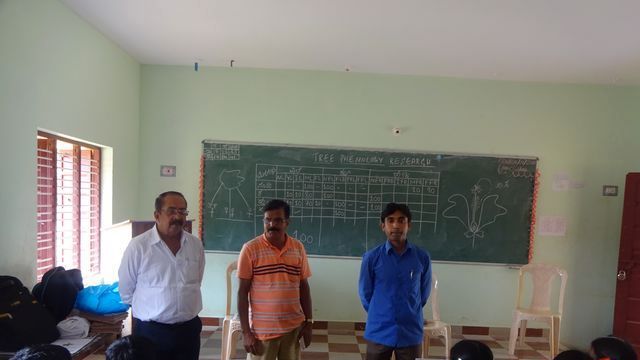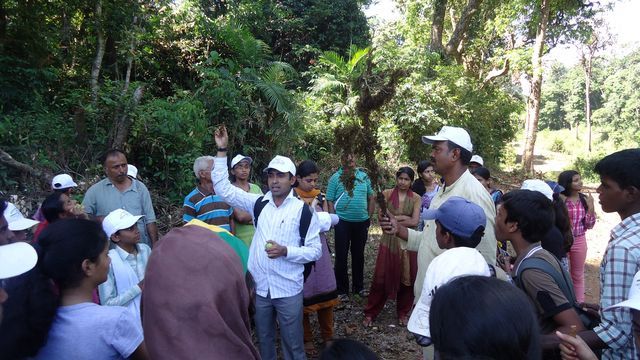about esc
projects

1. Pilot project to study and share the effects of the agro fuel development in India from a Right to Food perspective.
Funded by (ECONET, Pune and FIAN), India. (Sep-Nov – 2011). – Based on the observations and discussions with farmers in chitrdurga agricultural crops like Groundnut, onion, chilly, Horse gram, Jowar, Maize, pearl millet, Red gram, Sunflower and Sorghum were grown. But planting Pongamia trees is a traditional practice as an edge plant or as fuel plant to a lesser extent, on bunds of agricultural lands mainly for biomass, or has avenue tree along with neem tree. Main source of fuel plant they have had is plant commonly called (bellary jali) in Kannada which suits to that geo climatic conditions. From our observation and based on data collection no domestic violation with in the family and community for bio-fuel crops cultivation because no where they used or shared their agricultural land and there is no block plantation in waste land or agricultural lands because it need three years of nourishment for their sustenance and survival. Exception to the above, forest department of Karnataka division in Challekere has introduced pongamia in eucalyptus plantation for the promotion of bio-fuel crop from KBDA also had a policy not to threaten or violate the food production.

2. Plastic and human sustainability
funded by KSPCB, Bengaluru, (Jan – Feb. – 2011), Dinesh Hosanagara, conducted this programme from ESC, reached 10,000 students with 47 programmes regarding awareness, use and sustainability.

3. Floristic diversity of Bilikal hillock of hunasaekatte, Bhadravathi
Funded by (ECONET, Pune and FIAN), India. (Sep-Nov – 2011). – Based on the observations and discussions with farmers in chitrdurga agricultural crops like Groundnut, onion, chilly, Horse gram, Jowar, Maize, pearl millet, Red gram, Sunflower and Sorghum were grown. But planting Pongamia trees is a traditional practice as an edge plant or as fuel plant to a lesser extent, on bunds of agricultural lands mainly for biomass, or has avenue tree along with neem tree. Main source of fuel plant they have had is plant commonly called (bellary jali) in Kannada which suits to that geo climatic conditions. From our observation and based on data collection no domestic violation with in the family and community for bio-fuel crops cultivation because no where they used or shared their agricultural land and there is no block plantation in waste land or agricultural lands because it need three years of nourishment for their sustenance and survival. Exception to the above, forest department of Karnataka division in Challekere has introduced pongamia in eucalyptus plantation for the promotion of bio-fuel crop from KBDA also had a policy not to threaten or violate the food production.

4. Changing Pattern of Food Consumption, A case study in Karnataka
This study was initiated with the support of Deccan Development Society (DDS), Hyderabad and Millet network of India. G.L. Janardhan and Dr.Nanda.A, (PI and Co-PI), (January – December 2014), selected 6 districts for sample selection for the study. They are South Karnataka Tumkur, Central Karnataka Shivamogga, Costal Karnataka Uttar Kannada, Bombay karnataka Gadaga, Hyderabad karnataka and the cereals growing districts Gulbarga and Bidar. The study highlighted many factors influenced the change in food consumption as it directly depends on growth and availability depends on domestic market, profit, labour problem, rainfall, temperature, market driven food, non availability of traditional varieties due to packed food, seeds, chemicals fertilizers etc.